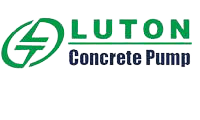Concrete construction materials refer to a series of widely-used concrete structural materials in construction field. Featured as the advantages of high strength, durability and environmental adaptability, they have been irreplaceable building materials.
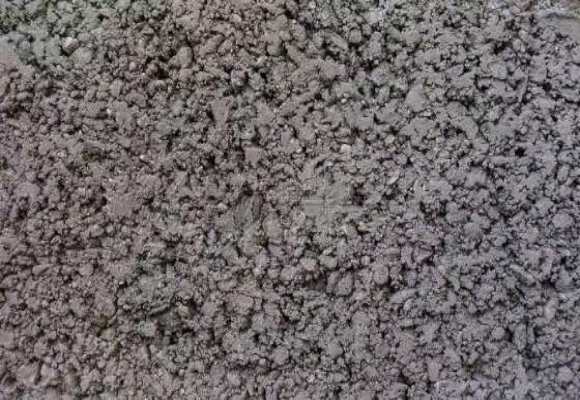
These materials are uaually made up by some similiar principal ingredients, including cement, fine aggregate (such as sand), coarse aggregate ( stone, gravel, crushed stone and so on), as well as water and admixtures (chemical and mineral), etc. Different qualities, ratios, types, even mixed methods of these ingredients will fiinally determine the different characteristics of concrete mixtrues.
How Many Types Of Concrete Materials
First of all, let’s get to know these concrete materials in construction field. According to different classification standards, there are many types of concrete materials.
According to Volume Weight
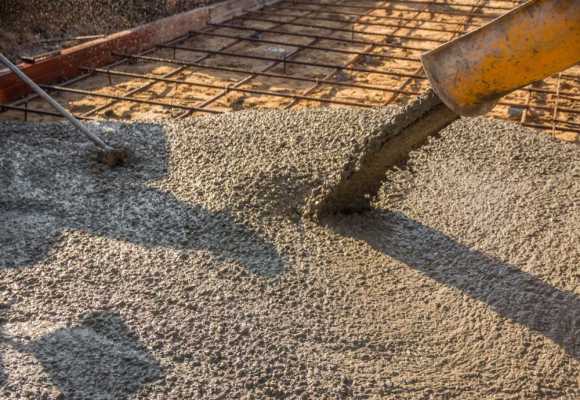
- High Density Concrete (Density>2600kg/m³)
- Ordinary Concrete (Density>1900~2500kg/m³)
- Lightweight Concrete (Density>500~1900kg/m³)
- Porous Concrete (Density>300-1200kg/m³)
Depending on different Composition Materials
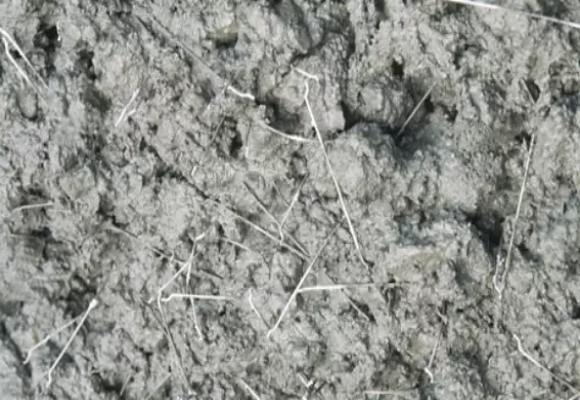
- Fiber Reinforced Concrete
- Polymer Concrete
- Silicate Concrete
- Lightweight Aggregate Concrete
- AE Concrete (including aerated concrete)
By Applications and Characteristics
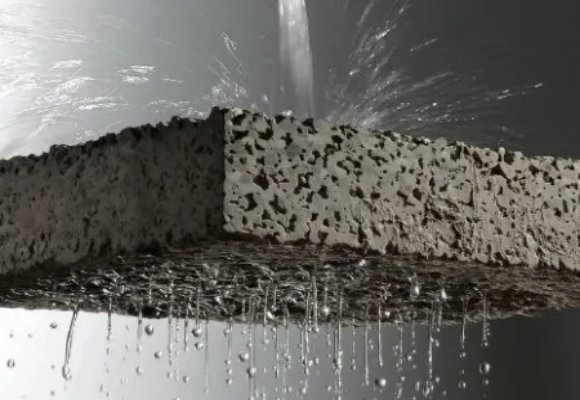
- Impermeable Concrete
- Waterproof Concrete
- Winter-pouring Concrete
- Summer-pouring Concrete
- Mass Concrete
- Expansive Concrete
- Radiation Resistant Concrete
- Heat Resistant and Fire-resistant Concrete
- Acid and Alkali Resistant Concrete
By Production and Construction Methods
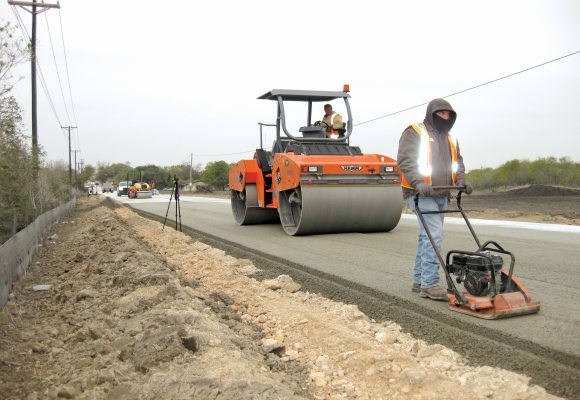
- Ready-mixed Concrete
- Pressure Grouting Concrete
- Prestressed Concrete
- Precast Concrete
- Aerated Concrete
- Hot Mix Concrete
- Pumped Concrete
- Shotcrete
- Paving Concrete
- Roller Compacted Concrete
How Many Models of Concrete Materials
For the convenience of application, so many concrete materials are named based on different compressive strengths. Concrete mixtures are typically represented by a combination of letters and numbers. The numbers in concrete represent the compressive strength of the material. For example, C30 concrete refers to concrete with a compressive strength of 30MPa. It indicates the maximum compressive strength that the concrete can withstand when subjected to specified curing time and conditions. The strength grade of concrete is determined based on its compressive strength, ranging from C10 to C12o. Common strength grades of concrete include C15, C20, C25, C30, C35, and so on.
Applications of Concrete Construction Materials
Concrete mixtures with different strength grades are applied in different construction areas. The specification is as follows:
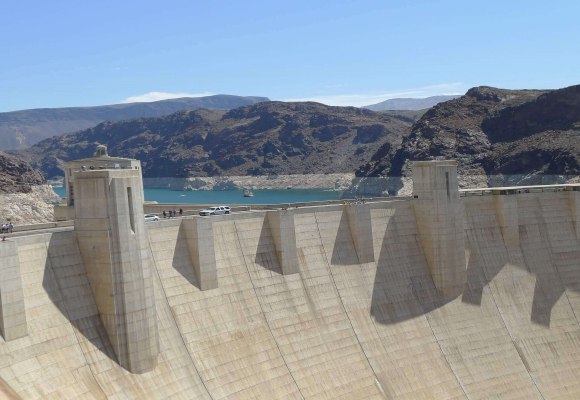

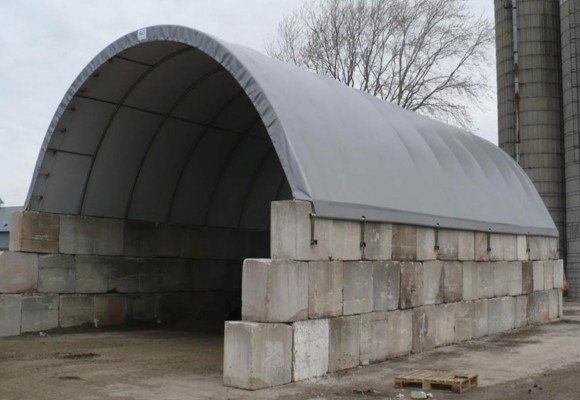
| Models | Applications |
| C10~C15 | Cushion layers, foundations, floors, and structures with low stress. |
| C20~C25 | Ordinary reinforced concrete structures such as beams, slabs, columns, stairs, roof trusses, etc. |
| C25-C30 | Large-span structures, structures with high durability requirements, and prefabricated components. |
| C40~C45 | Prestressed reinforced concrete components, crane beams, and special structures. |
| C50-C60 | High-rise buildings with floors ranging from 30 to 60. |
| C60~C80 | High-rise buildings, using high-performance concrete. |
| C80~C120 | Ultra high strength concrete is used in high-rise buildings. |
There are also other performance criteria and characteristics of concrete, such as workability, water-cement ratio, and aggregate size, which are typically described separately and may not be represented by numbers.
Conveying Methods Of Concrete Construction Materials
With various concrete materials that meet the construction requirements, the next step is how to transport them to the construction place. In order to complete construction quickly and efficiently, various types of concrete conveying equipment have emerged in the field of modern construction machinery.
In addition to the concrete mixer truck that we are all familiar with, there are also various pumping, spraying and other equipment, like concrete trailer pump, concrete mixer pump, concrete boom truck as well as spraying concrete pump, etc. Concrete mixer trucks are suitable for long-distance concrete transportation, while pumping equipment is more commonly used for concrete mixing and transportation at construction sites.

Mini Concrete Pump
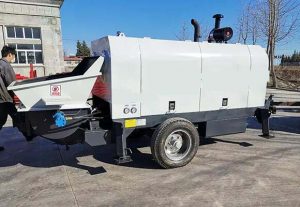
High-Pressure Concrete Pump
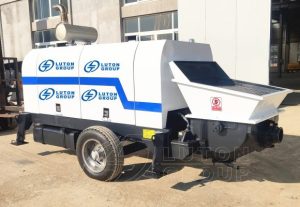
Concrete Trailer Pump
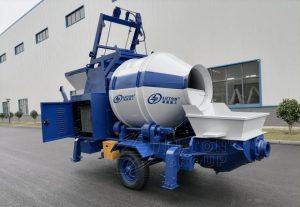
Concrete Mixer Pump
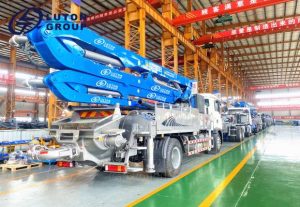
Concrete Boom Pump

Small Concrete Pump Truck
Composition And Function Of Concrete Construction Materials
Common concrete construction materials, as the above mentioned, are cement, fine aggregate, coarse aggregate, water and additive.
Cement
Cement, added into water, will become a liquid bonding agent. It can securel wrap and solidify aggregates into various shapes, giving them high strength, stability and durability to meet various needs in construction.
Actually, there are many different models in cement products suitable for different concrete applications.
Portland Cement
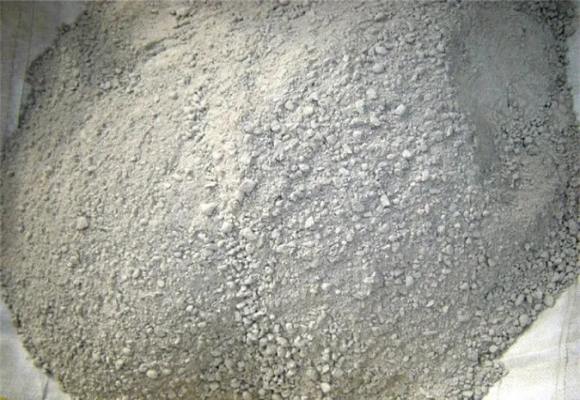
Portland Fly-ash Cement
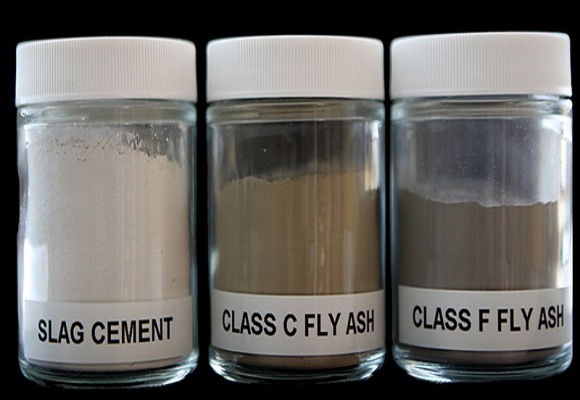
| Cement Types | Models | Applications |
| Portland Cement | PI42.5, PI52.5, PI62.5 | Mainly used in projects with high solidification strength requirement |
| Ordinary Portland Cement | PO32.5, PO425, PO52.5 | Mainly used in ordinary dry environment, and preferred in colder regions |
| Portland Slag Cement | PS32.5, PS452.5, PS52.5 | Superior in high humidity environments, especially in underwater projects sites where cannot be replaced by other types of cement. |
| Pozzolana Cement | PP32.5, PP42.5, PP52.5 | Used in ordinary environments, strictly prohibited in dry and cold sites. |
| Portland Fly-ash Cement | PF32.5, PF42.5, PF52.5 | Same as the Pozzolana Cement |
Fine Aggregate
Fine aggregate plays a role of filling material in concrete mixture, including river sand, mountain sand and sea sand. So, the reasonable use of fine aggregates in concrete mixture, including the selection of types and determination of proportions, is an important prerequisite for the stability of concrete structures.
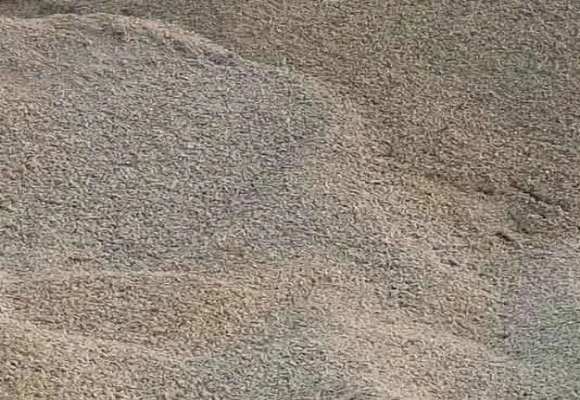
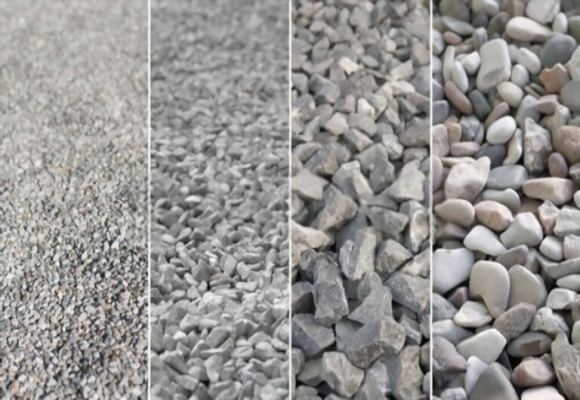
The influence of the proportion of fine aggregate on the performance of concrete mixture:
- The ratio of fine aggregate affects the strength and crack resistance of concrete materials.
- The proportion affects the pore structure and volume shrinkage rate of concrete.
- The fine aggregate ratio in concrete mixture affects the construction process.
Coarse Aggregate
Coarse aggregate is the skeleton of concrete mixture. It takes the largest volume in concrete mixtures, usually accounting for 40% of the total volume. It plays a role in improving the volume stability of concrete throughout the entire concrete mixture.
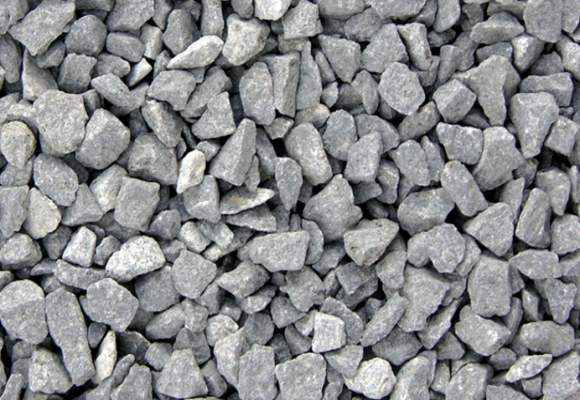
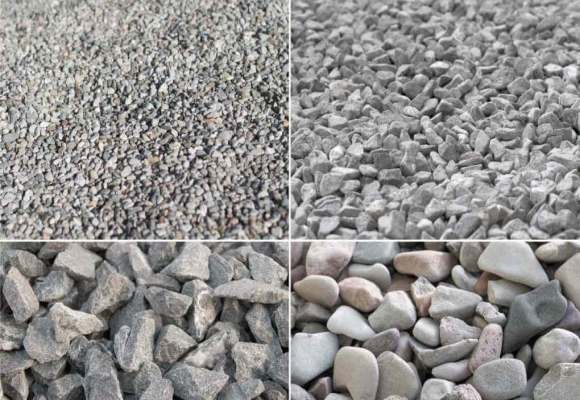
Therefore, the proportion of coarse aggregate also has an important impact on the performance of concrete. These impacts are mainly manifested in:
With the use of coarse aggregate, the material porosity decreases. While maintaining the same amount of cementitious material and additional materials, the water consumption decreases and the concrete strength increases accordingly.
In this way, not only the strength of concrete, but also its workability, impermeability, and frost resistance can be improved.
Water In Concrete Mixture
The main roles water plays in concrete mixture are dissolving cement and adjusting the viscosity of concrete mixture.
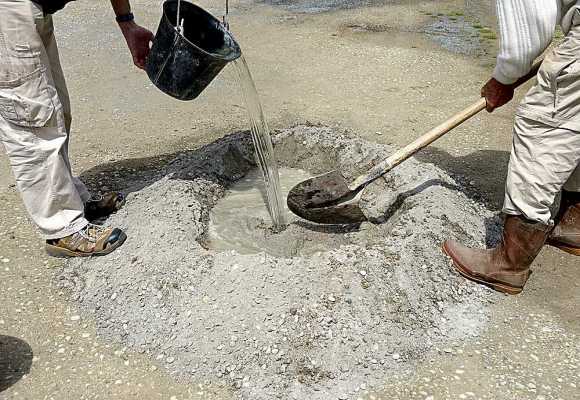
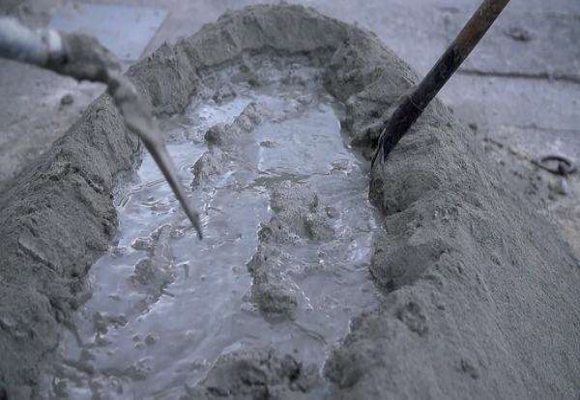
- Dissolving Cement
In the process of mixing concrete materials, powdered cement cannot be directly bonded to aggregates and other materials, and must be transformed into a cementitious material through hydration reaction. Water is a catalyst for the transformation of cement from a powdered solid to a colloidal substance.
- Adjusting Viscosity
An appropriate amount of water is a necessary condition for concrete performance. The lower the water cement ratio with the same strength grade, the greater the bonding force with the aggregate, and the higher the strength of the concrete.
It can be seen that the proportion of water has a significant impact on the performance of concrete, mainly manifested in;
- Strength of Concrete
In actual construction, adding more water is easy to mix, but excessive water content leads to a higher water cement ratio than the usual value (0.30-0.70). This will cause the water content in the solidified concrete to be too high. When the water evaporates, there will be pores remaining in the solid concrete. It will reduce the strength of the concrete. - Cohesiveness and flowability of concrete
Excessive water can make the concrete too thin, have poor cohesion, increase fluidity and slump, and affect the quality of the concrete. However, too little water can also make the concrete too dry, agglomerate, and have a low slump, which is not conducive to pouring and compacting.
Admixture
In order to meet different needs of concrete raw materials, engineers have designed various admixtures. Different concrete admixtures can cause different changes in the performance of concrete.
- Some admixtures can improve the rheological properties of concrete mixtures, such as water reducing agents, air entraining agents, pumping agents, etc.
- Some to adjust setting and hardening properties of concrete materials, such as retarders, accelerators, early strength agents, etc.
- Some can adjust air content of concrete mixture, such as air entraining agents, air entraining agents, etc.
- There are also admixtures suitable for improving the durability of concrete, such as waterproofing agents, rust inhibitors, air entraining agents, etc.
- There are also some admixtures that can provide special properties for concrete, such as antifreeze, expansion agents, colorants, etc.
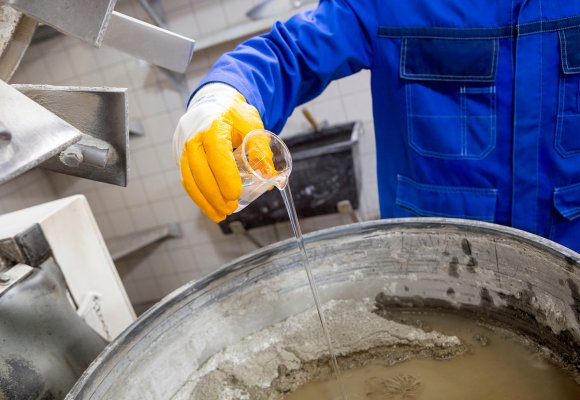
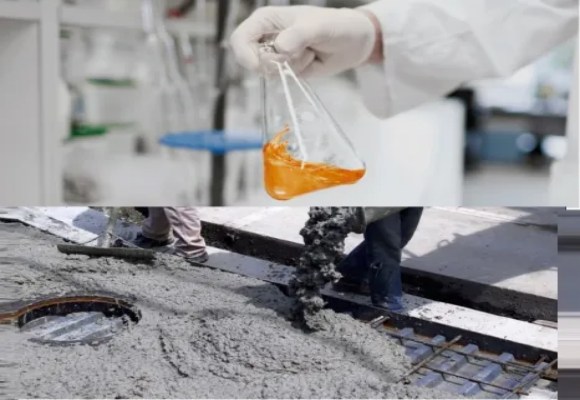
The ingredients of these raw materials will be thoroughly mixed according to different proportions, ultimately forming concrete construction materials with different strength grades to meet the needs of different projects.
For example, the ratio of C20 concrete is: 75 kilograms of water, 343 kilograms of cement, 621 kilograms of sand, and 1261 kilograms of stones. So the mix ratio of C20 is 0.51:1:1.81:3.68.
The ratio of C25 concrete is 175 kg of water, 398 kg of cement, 566 kg of sand, and 1261 kg of stones. So the mix ratio of C25 is 0.44:1:1.42:3.17.
Contact Us
For more details of concrete construction materials and concrete mechinary, you are welcome to contact us – LUTON GROUP – a leading concrete equipment manufacturer of China.

